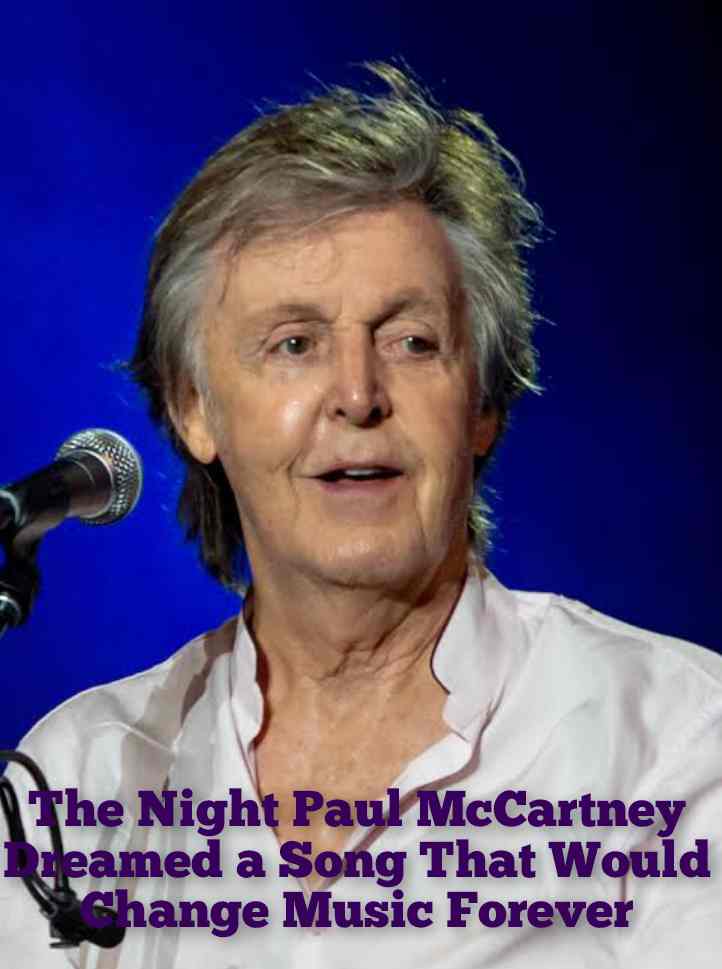
It’s almost poetic that a song as tender and wistful as “Yesterday” came to Paul McCartney in a dream. The melody for what would become one of The Beatles’ most beloved tracks emerged while McCartney was asleep, only for him to capture it moments after waking up. He immediately sat at the piano by his bed, piecing together the tune while still unsure if it was truly his own creation.
As McCartney described in Barry Miles’ biography Many Years From Now, published in 1998, he awoke with the melody already formed in his mind. “I got out of bed and went to the piano,” he recalled. He played through a series of chords — G to F sharp minor 7th, then B to E minor, and back again — finding the music flowed naturally, as though it had been waiting for him.
What began as a mysterious tune from a dream turned into a legendary ballad, though the song’s first draft had none of the poignant lyrics we know today. Instead, McCartney filled the melody with nonsense lyrics about scrambled eggs to hold the place of real words. This placeholder verse would eventually transform into the melancholic lines that defined “Yesterday.”
The Jane Asher Connection
The origins of this song are intertwined with McCartney’s relationship with actress Jane Asher. Their story began in 1963, backstage at London’s Royal Albert Hall. At just 17, Asher caught McCartney’s attention during a photoshoot. After that night, they stayed up chatting until morning, bonding over simple things like favorite meals and first impressions.
McCartney described their early relationship as gentle and innocent. As Beatlemania exploded, McCartney found refuge at the Asher family home on Wimpole Street in London, eventually moving into their attic. It was there, in that small room filled with instruments, that the dream-inspired melody of “Yesterday” first took shape.
A Long Road from Dream to Song
Though McCartney and John Lennon were used to co-writing songs side by side, often sitting across from each other with guitars in hand, “Yesterday” was a different story. This one was entirely McCartney’s project. Lennon’s only contribution was suggesting the song have a simple, one-word title.
For months, McCartney played the tune repeatedly for friends and colleagues, worried that he might have unintentionally copied it from somewhere. Even during filming breaks on Help!, he’d sit at the piano, hammering it out to the point where director Richard Lester threatened to remove the piano from the set if McCartney didn’t finish the song soon.
The breakthrough came during a holiday trip to Portugal with Asher. Driving through dusty, winding roads while Jane slept beside him, McCartney’s mind wandered back to the melody. That’s when fragments of the final lyrics began to appear. Once they arrived at their friend Bruce Welch’s villa, McCartney borrowed a guitar and quickly worked out the complete lyrics over the following two weeks.
Nearly Left Off the Single Charts
Despite the song’s eventual acclaim, “Yesterday” almost didn’t make it as a single. At the time, The Beatles’ British label, Parlophone, hesitated to release it, fearing fans wouldn’t embrace its stripped-down, acoustic style. It seemed too different from the energetic pop The Beatles were known for in 1965.
However, the American label Capitol Records had no such reservations and released it stateside, pairing it with Ringo Starr’s country-style track, “Act Naturally.” The public response was overwhelming, making it a chart-topping hit. Parlophone then relented, issuing the song as part of an EP.
Even within The Beatles, there were doubts about the song’s lyrical depth. Lennon later admitted that while the words sounded good, the story itself lacked clarity. In an interview with Playboy shortly before his death, Lennon remarked that though the song captured emotion, it didn’t really explain what happened — only that the singer wished for yesterday.
Despite Lennon’s critique, time has proven “Yesterday” to be one of the most enduring and influential songs in pop history. Ranked as the greatest pop song of the 20th century by both Rolling Stone and MTV, and covered by over 3,000 artists, it stands as a testament to McCartney’s gift — and to the strange, beautiful music that sometimes arrives in our sleep.








Lovely 🌹🌹